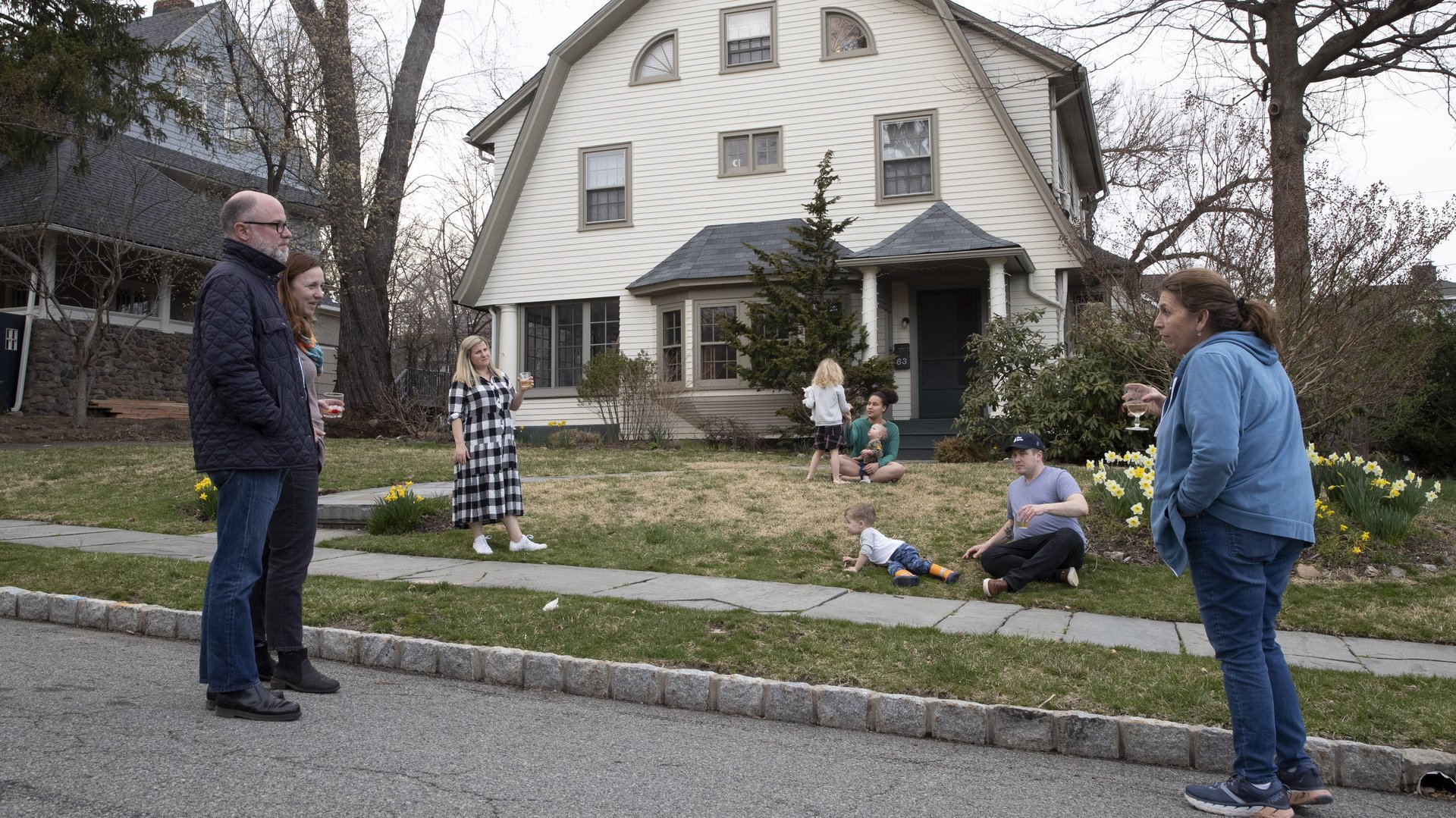Our quarantine lives are starting to look as over-scheduled as our normal lives
It happened last Friday around 8 pm. I was speaking with a group of friends on Houseparty—a call we had scheduled days in advance—when someone suggested that we all watch a movie together with the Netflix Party extension the following day. Would 6 pm work for everyone, she asked? Someone had a conflict with another watch party that evening, while another had a scheduled FaceTime call with a family friend. We settled on 4 pm.


It happened last Friday around 8 pm. I was speaking with a group of friends on Houseparty—a call we had scheduled days in advance—when someone suggested that we all watch a movie together with the Netflix Party extension the following day. Would 6 pm work for everyone, she asked? Someone had a conflict with another watch party that evening, while another had a scheduled FaceTime call with a family friend. We settled on 4 pm.
That’s when it occurred to me: We had entered The Bad Place.
For a few days last week, when restrictions tied to the Covid-19 outbreak were first put in place, and millions of people were confined to their homes, it seemed like we had almost cracked the code of our over-scheduled social lives. No one had anywhere to be. We all spent a lot of time catching up with old friends, logging on to Zoom to celebrate a birthday or even attend a wedding.
To be clear: I am only speaking of a very privileged subset of people for whom this extended quarantine comes with unlimited access to the internet and lots of free time. I am not talking about the millions of people who are struggling to balance childcare, unemployment, lack of resources, or illness in this difficult time. But for a not-insignificant group, it felt, for a little while at least, like spontaneity and unscheduled free time had returned—and all it took was an unprecedented global pandemic that essentially forced us all to lock ourselves into our homes indefinitely.
The pendulum, however, has already swung. Fearing too much time alone, we’ve signed up for one too many online meditation classes and said yes to too many virtual happy hours. It’s taken the joy out of the whole experience of Being Alone Online Together—not to mention driven our phone use time up and given us a headache.
Now our virtual lives are just as over-scheduled as our real ones. The Wall Street Journal calls it video-call fatigue. The Cut says we all have Zoom Hangovers. Whatever it is, it’s not pleasant.
Last year, before Covid-19 was a term everyone knew, Judith Shulevitz wrote in The Atlantic that Americans are working longer and more unpredictable hours that have blended into our family and personal lives, with disastrous consequences for our mental health and well-being. “I know this dates me, but I’m nostalgic for that atmosphere of repose—the extended family dinners, the spontaneous outings, the neighborly visits,” she wrote. And while we can still do all of those things on weekends, “Sundays are no longer a day of forced noncommerce—everything’s open—or nonproductivity. Even if you aren’t asked to pull a weekend shift, work intrudes upon those once-sacred hours. The previous week’s unfinished business beckons when you open your laptop; urgent emails from a colleague await you in your inbox. A low-level sense of guilt attaches to those stretches of time not spent working.”
If she had only known what was to come a few months later.
Millions of people have lost their job because of the economic fallout from coronavirus. But for those who still have a job, it feels like it’s become even more difficult to draw a line between work and non-work hours than it was before. Why not check that Slack message from your boss at 10 pm if you’ve got nothing else to do? Why not work over the weekend—and do weekends even matter anymore anyways?
Even independently of our jobs, it seemed like we were all busy all the time before this pandemic. And I’m not talking about having to drop multiple kids off at their after-school activities or scheduling doctors’ appointments while sitting in traffic. I’m talking about the elective busyness some of us had bought into—that every night of the week had to be filled with social plans, workout classes, or lectures. Here’s how Tim Kreider described it in a 2012 opinion piece for The New York Times: “Busyness serves as a kind of existential reassurance, a hedge against emptiness; obviously your life cannot possibly be silly or trivial or meaningless if you are so busy, completely booked, in demand every hour of the day.”
Now that we’re stuck at home, it’s hard to resist packing our non-productive hours with virtual social commitments too, because it can feel like the only silver lining during otherwise pretty dreary days spent at home worrying about getting sick. Striving for social contact is normal and healthy, and social isolation and its close companion, loneliness, are bad for our mental health. But our packed schedules leave us with little time for other things that are good for us too—like mindfulness, self-reflection, exercise, journaling, reading books, and taking up a hobby.
This long period of enforced time at home has the potential to be restorative and transformative for many. Life can sometimes feel like you’re on a rapidly-speeding treadmill set on an incline—you have to keep going to stay on. But now, we have a chance to press pause and get off. Learn to cook. Pick up a new language. Clean out those closets. Spend time in nature every day (while respecting the rules of social distancing, please).
Whatever you decide to do with your time, when you look back on this moment in your life, the last thing you’ll want to think is I wish I hadn’t spent so much time on my phone.